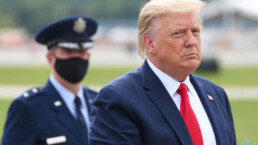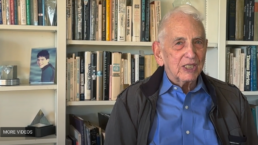Granting Presidents freedom from prosecution removes any lasting checks on their behavior in office.
By Chris Edelson, The Progressive
In 1881, Oliver Wendell Holmes Jr. wrote that “The life of the law has not been logic, it has been experience.” Holmes, who would later become a Supreme Court Justice, meant that the law could not be based on abstract, sterile philosophies or theories detached from reality. Instead, law is a practical and pragmatic enterprise that must take into account how legal rules and judicial decisions operate in the real world.
The U.S. Supreme Court’s presidential immunity decision in Trump v. United States is rooted in neither logic nor experience. The Court ruled that Presidents are broadly immune from criminal prosecution whenever they use the powers of their office, even if they use those powers to commit what would otherwise—for anyone else—be crimes. This is a breathtaking and dizzying conclusion that turns everything we know about our Constitutional system on its head. The framers of the Constitution emphatically did not want a monarch who was unconstrained by law. Their writings in the Federalist Papers and in the Constitution make this clear.

Alexander Hamilton, who took the broadest view of executive power, declared that, unlike a monarch, the President, like every other government official, “ought to be personally responsible for his behavior in office.” Chief Justice John Roberts’s majority opinion perversely adds a caveat to Hamilton’s statement—that somehow Presidents are not personally responsible for criminal behavior in office.
Elsewhere, Hamilton explained that, under the Constitution, “The President of the United States [unlike the British monarch] would be liable to be impeached, tried, and upon conviction of treason, bribery, or other high crimes and misdemeanors, removed from office and would afterwards be liable to prosecution and punishment in the ordinary course of law.” Treason and bribery are, of course, crimes—but Roberts says that Presidents can not be prosecuted for such offenses when committed pursuant to what a President believes is his or her authority. This is not logic; it is madness.
Recent Posts
As Security Council Stalls, There Are Other Ways to Stop U.S.-Israeli War on Iran
March 3, 2026
Take Action Now A “Uniting for Peace” resolution in the UN General Assembly can counter the Security Council’s failure to act.By Marjorie Cohn,…
States Can Block the Paramount-Warner Deal
March 3, 2026
Take Action Now But thanks to some clever maneuvering, they are already running out of time.By David Dayen, The American Prospect What started as…
Congress, Do Your Job and End This Illegal War of Aggression By The U.S. and Israel
March 2, 2026
Take Action Now Congress must assert its Constitutional authority over matters of war and peace against an out-of-control, rogue president and…
Daniel Ellsberg Speaks to Us as the War on Iran Continues
March 2, 2026
Take Action Now Ellsberg’s voice is back via a compelling new book. “Truth and Consequence,” being published this week, provides readers with his…




